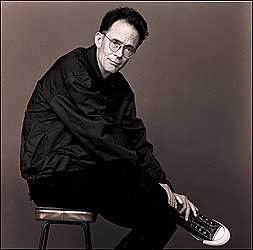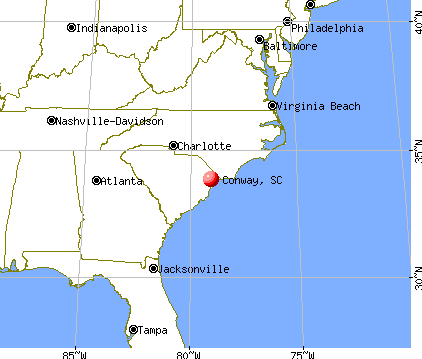Author: William Gibson Book: Neuromancer
What interested me about the author was doing some very basic research. With a couple minutes I found out that Gibson pioneered the cyberpunk genera and although I don’t fall under that category or have ever read a book from that genera, I felt that if I was to read a cyberpunk book, Neuromancer would be a good place to start. Another angle of why I chose to read a William Gibson novel is because when he was in the process of writing this novel he had no guideline/templates to follow. He was the first author to take the cyberpunk genera to the mainstream.
 |
| Portrait of William Gibson. |
Gibson was born March 17, 1948, in Conway, South Carolina but moved around the country as he dad worked for a big company He now lives in Vancouver, British Columbia. Gibson had for the most part a fairly normal childhood however he did have to deal with the death of his father while he was still in elementary school. Gibson was gifted in subjects such as English but struggled in the majority of the rest. His SAT score back this up (Mathematics- 5/150 Written- 148/150). Another interesting chapter in William Gibson’s life is that the reason he resides in Canada, which is because he was dodging the Vietnam draft.
 |
| William Gibson's Birthplace. |
The novels listed bellow are some of William Gibson’s better known novels in chronological order. Gibson released a major trilogy called Sprawl*. The peak of his writing career lasted 11 years. All of his novels are of the cyberpunk genera.
*Neuromancer 1984
*Count Zero 1986
Burning Chrome 1986
*Mona Lisa Overdrive 1988
The Difference Engine 1990
Virtual Light 1993
Johnny Mnemonic 1995
 |
| The Sprawl Trilogy Featured: Neuromancer(left), Count Zero (middle), Mona Lisa Overdrive (right) |
Although William Gibson doesn’t directly reflect on his life in his novels, there have been many experiences that shaped him into the accomplished author he is today. The first being the passing of his father at a young age and the passing of his mother at age 18. Secondly, he moved to Canada to avoid being shipped out to Vietnam. Gibson said that he would have done what ever it took to stay. After going through a couple of rough patches where he found himself homeless and washed up, (very similar to Case in Neuromancer) he moved to British Columbia with his wife Vancouverite Deborah Jean Thompson, soon after he got his English degree at the University of British Columbia. Gibson had it set in his mind that he was going to write science-fiction books at the age of 12.
| University of British Columbia Logo |

There are a couple different ways you can look at William Gibson when comparing him to other authors. You can compare him to other great Sci-fi writers or you could compare him to other authors that were pioneers in their genera. As a child he read science fiction books by Allen Ginsberg, Jack Kerouac and William Burroughs. They were all popular Sci-fi writers during his childhood. I would compare Gibson to these men because their work helped inspire him to become an author. Secondly I would compare him to J.K Rowling because he brought Sci-fi more main stream similarly but not on as big a scale to what Rowling did with Fantasy/Fiction books.
 |
| A comic written by William Burroughs, one of Gibson's favorite authors during his childhood. |
Sources
http://galenet.galegroup.com/servlet/GLD/hits?r=d&origSearch=false&o=DataType&n=10&l=d&h=1100056436&c=1&locID=stc23378&secondary=false&u=CLC&t=KW&s=3&NA=William+Gibson
John R. R. Christie, "Science Fiction and the Postmodern: The Recent Fiction of William Gibson and John Crowley." Essays and Studies 43 (1990): 34-58.
http://galenet.galegroup.com/servlet/GLD/hits?r=d&origSearch=false&o=DataType&n=10&l=d&h=1100056438&c=1&locID=stc23378&secondary=false&u=CLC&t=KW&s=3&NA=William+Gibson
Glenn Grant, "Transcendence through Detournement in William Gibson's Neuromancer." Science-Fiction Studies 17, no. 1 (March 1990): 41-9.
http://galenet.galegroup.com/servlet/GLD/hits?r=d&origSearch=true&o=DataType&n=10&l=d&h=CLC0227DOC02310&c=1&locID=stc23378&secondary=false&u=CLC&t=KW&s=3&NA=William+Gibson&TI=Neuromancer
Robert K. J. Killheffer "Interview with William Gibson" Publishers Weekly, Vol. 240, No. 36, September 6, 1993, pp. 70–1
Bibliography

No comments:
Post a Comment